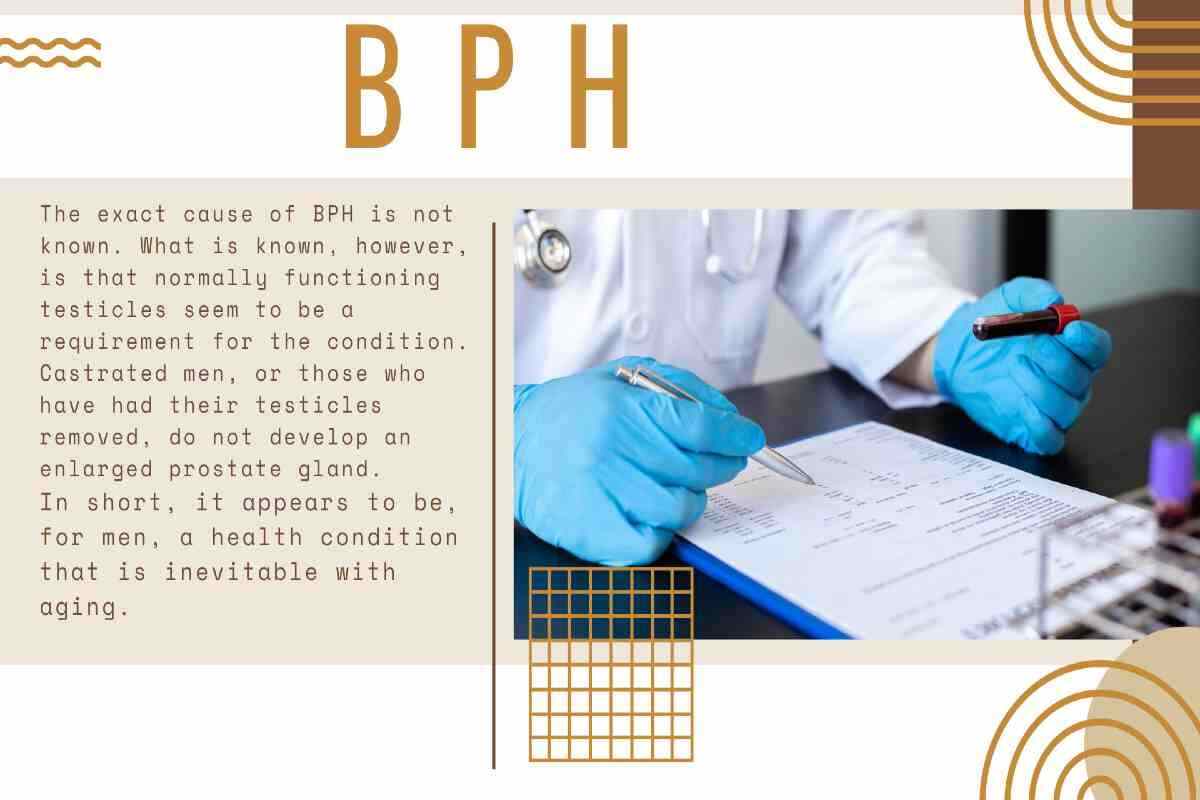Benign Prostatic Hypertrophy (BPH): Symptoms & Treatment

The enlarged prostate gland, also known as Benign Prostatic Hypertrophy or Benign Prostatic Hyperplasia (BPH), is a noncancerous condition in which the male prostate gland swells, which, in turn, exerts excessive pressure on the urethra.
What is the urethra?
The urethra is the tube that carries urine from the bladder through the prostate and out of the penis.
Symptoms of Benign Prostatic Hypertrophy (BPH)
The symptoms of BPH, are incomplete emptying of the bladder, dribbling, difficulty starting urination, reduced force of the stream, and frequent urination of small amounts.
These symptoms are very similar to another prostate problem called acute bacterial prostatitis.
It is estimated that 80% of men aged 40 and over have some degree of an enlarged prostate gland or BPH. The condition may exist for years with little to no symptoms but progressively worsen with age.
In rare cases, what is believed to be BPH or an enlarged prostate gland can, in fact, be prostate cancer or prostatitis (a more serious inflammation of the prostate), which has its own symptoms such as prostatitis and itching.
Therefore, it’s important to check with your doctor about having a PSA blood test done, which can determine whether or not your condition requires immediate medical attention.
Also Read: Cancer Prevention – Tips To Reduce Your Risk
Causes and Treatment Of An Enlarged Prostate Gland
What causes an Enlarged Prostate Gland?
The exact cause of BPH is not known. What is known, however, is that normally functioning testicles seem to be a requirement for the condition. Castrated men, or those who have had their testicles removed, do not develop an enlarged prostate gland.
In short, it appears to be, for men, a health condition that is inevitable with aging.
Although an enlarged prostate gland may be unavoidable to some degree, this does mean nothing can be done about it. The following are some protocols to help improve your prostate health.
Dietary and Lifestyle Steps
- Eliminate over-the-counter cold medications and decongestants, which have been known to exacerbate the symptoms of an enlarged prostate.
- Increase consumption of tomatoes, which are rich in lycopene, an important nutrient for prostate health.
- Reduce intake of dairy products, which have been shown in studies to raise the risk of prostate cancer appreciably.
- Eat plenty of onions, garlic, and scallions, which recent studies have shown to be highly beneficial for the prostate. For example, Asian men, whose diets are notably high in these foods, have among the lowest rates of prostate cancer.
- Talk to your doctor about possible meds for enlarged prostate.
Nutritional Supplement for an Enlarged Prostate Gland
Beta-Sitosterol
Everywhere you go, supplements for prostate health or enlarged prostate gland contain Saw Palmetto. You’ve probably even heard of Saw Palmetto. However, what most people do not know is that beta-sitosterol is thousands of times more potent and effective than saw palmetto. Here’s the reason: even the best saw palmetto supplements are comprised of 99% fatty acids and 1% sterols. The therapeutic advantage is found in the sterol component, therefore the term beta-sitosterol.
Taking saw palmetto supplements for an enlarged prostate gland simply makes no sense when you can take beta-sitosterol and get thousands of times the efficacy. Beta-Sitosterol acts as an anti-inflammatory and diminishes the swelling of tissues, such as an enlarged prostate gland.
Zinc
An important mineral that has been shown to help shrink an enlarged prostate. Since zinc can decrease the body’s absorption of copper, it should be added to formulas that contain copper.
Lycopene
As mentioned before, an important nutrient for prostate health is found in high concentrations in tomatoes (ketchup is not a good source, however, as it contains too much sugar). Additionally, it can be used as a supplement.
Vitamin E
Vitamin E is a strong antioxidant that can neutralize damage caused by free radicals, which are highly reactive chemical substances that are believed to lead to a host of diseases. It also has anti-inflammatory properties.
Also Read: High Blood Pressure – Symptoms and Treatment – Arogyabhava